In last post of this series, we learned about role of VPG. Also we created a test VPG and saw initial data synch happening between the protected and recovery site. In this post we will learn how to perform test failover.
If you have landed directly on this page by mistake, then I encourage you to read earlier posts of this series from below links:
1: Zerto Architecture and Components
2: Installing Zerto Virtual Manager
3: Installing Zerto Virtual Replication Appliance
4: Creating Virtual Protection Group
In a DR environment its always considered as a best practice to periodically perform test failovers to ensure that VM’s are replicating fine and are recoverable at the recovery site.
Failover Test is completely non-disruptive and there is no impact on production workloads as part of testing. When test failover is performed, VMDK are provisioned using journal history.
Typically this is the workflow for test failover.
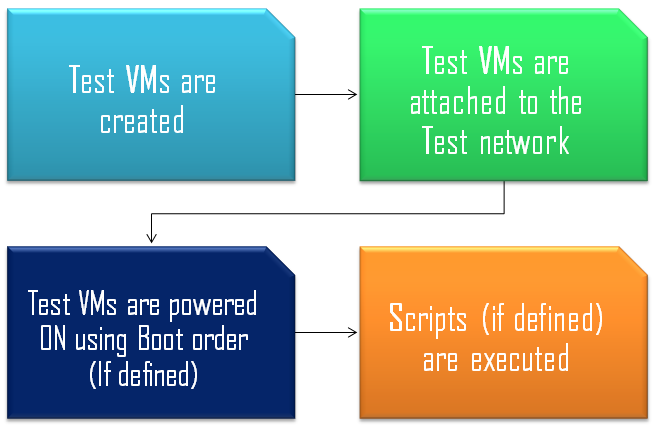
Image credit: http://www.vzare.com
Lets dive into lab now and perform our first test failover.
1: Login to ZVM interface. At the right hand side bottom corner, you will see option for test/live failover. By default the button is set to Test. Leave it selected and click on “Failover”
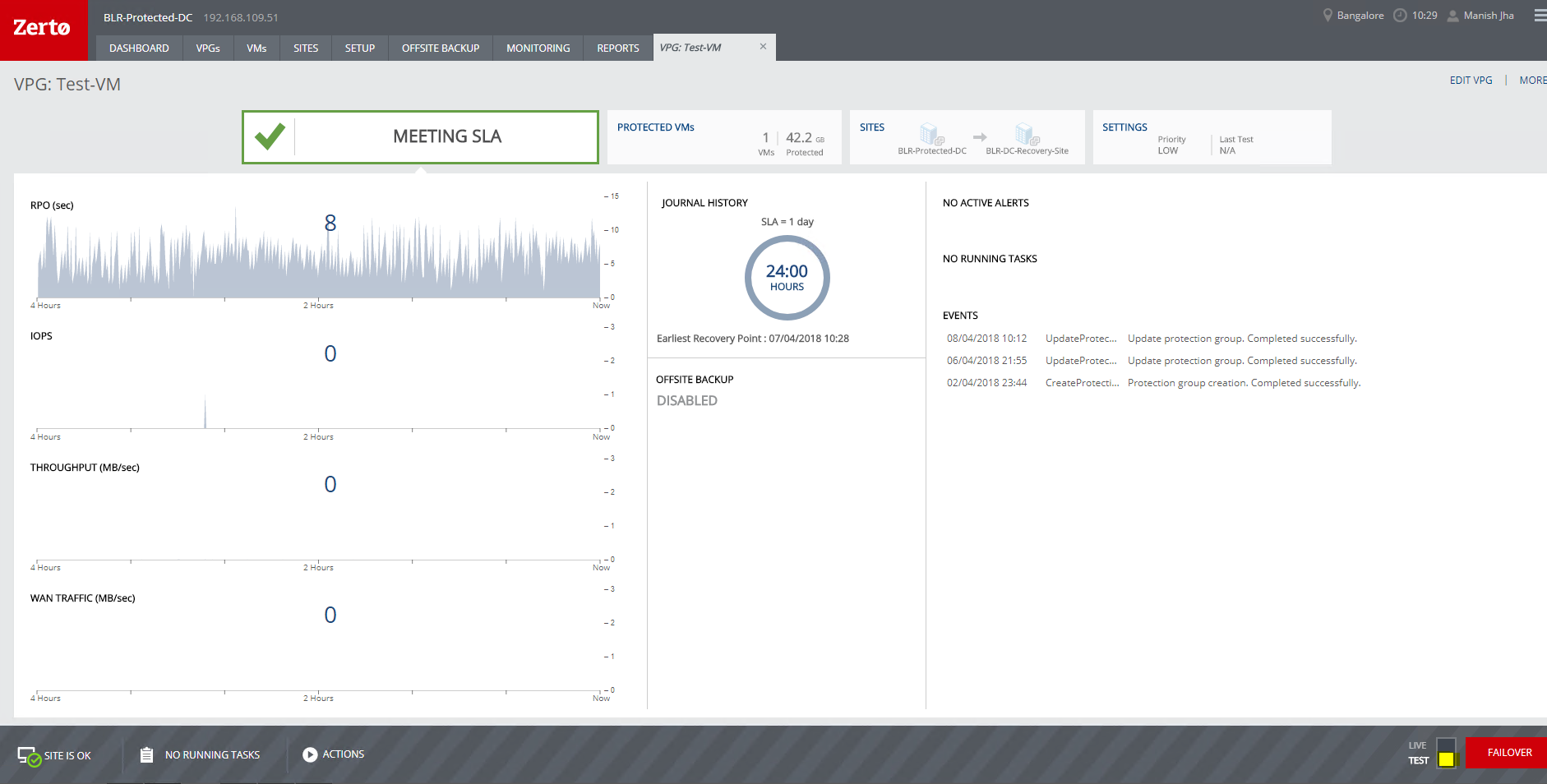
2: Select the VPG/VPG’s you want to test and hit Next.
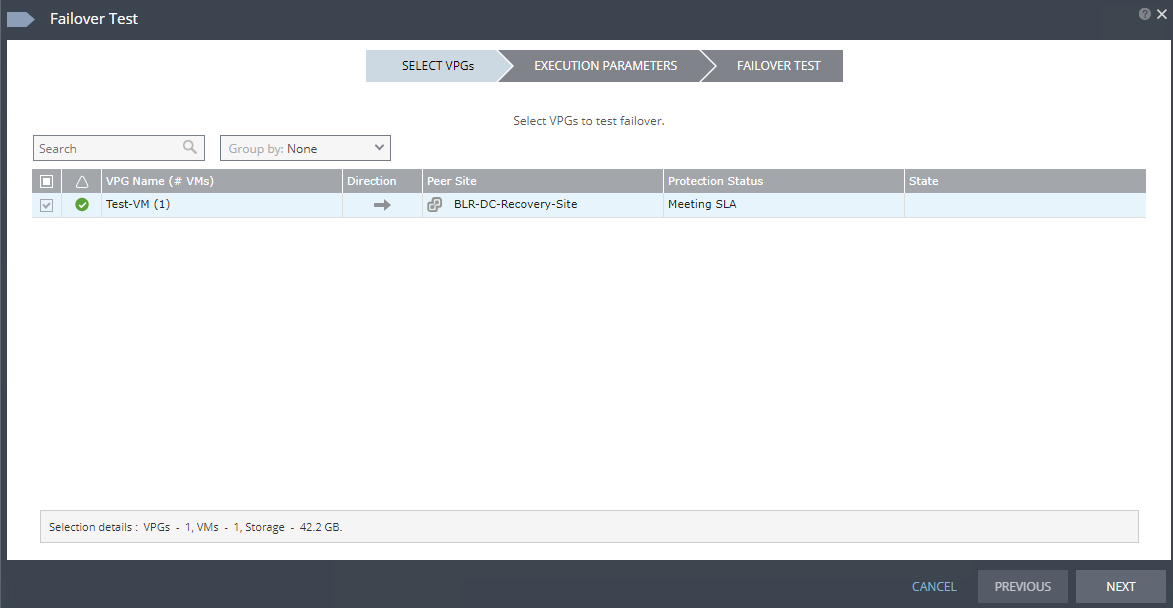
3: If I have only one VM in my VPG, so boot order is empty for me. Also I have not defined any pre/post execution script, so that column is empty as well. Hit Next to continue.
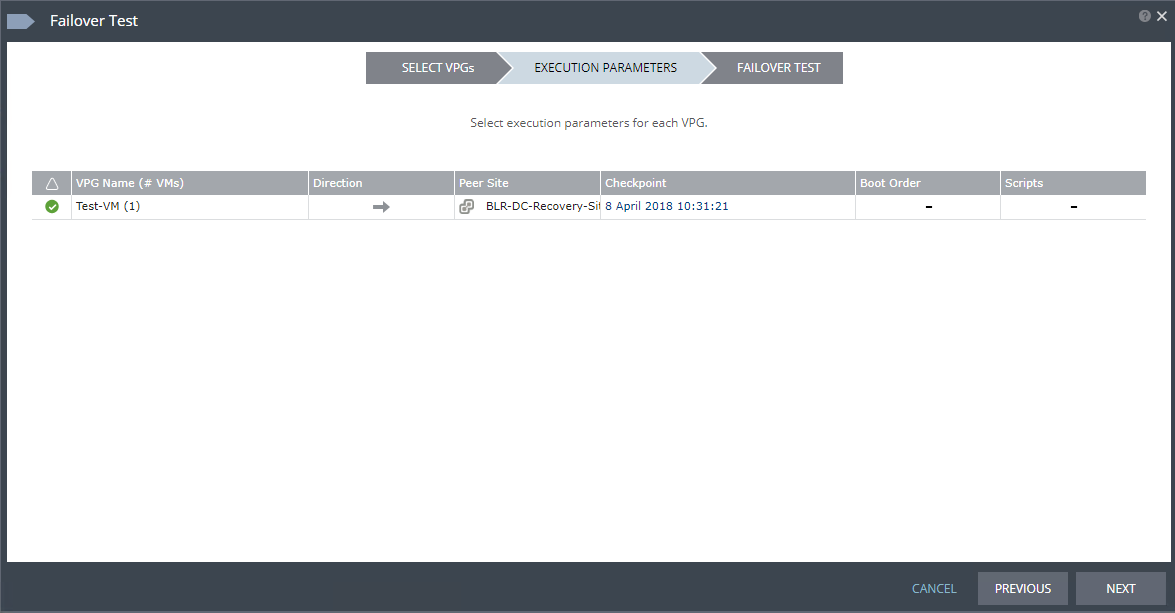
4: Click on “Start Failover Test” to initiate the process.
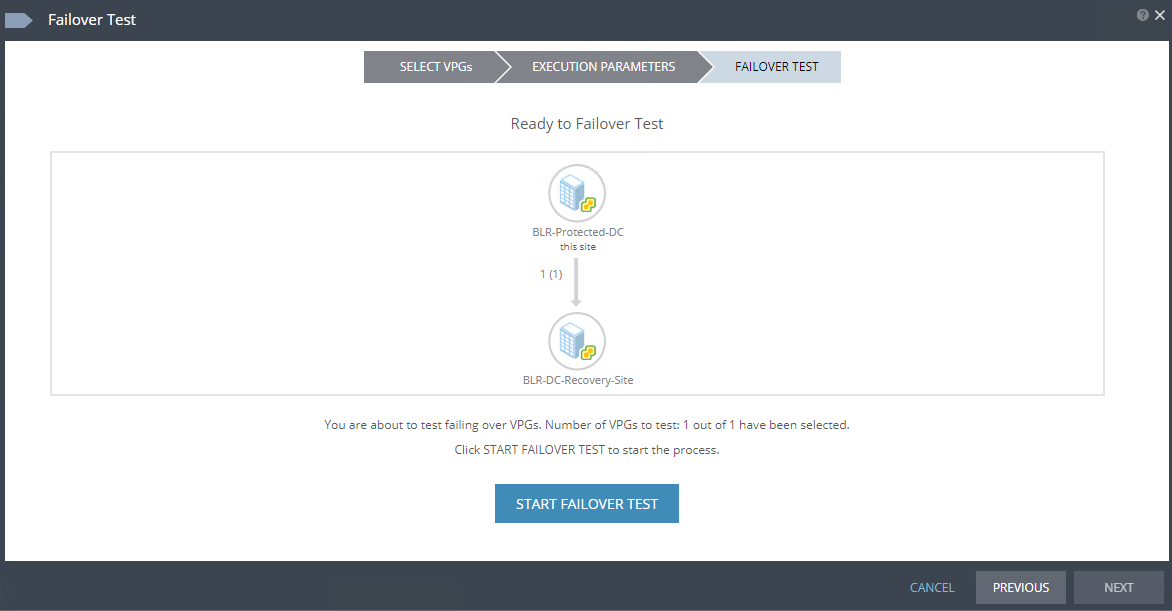
5: At recovery site you will see following events kicked in vCenter. You wil also find a new VM added to vCenter inventory.

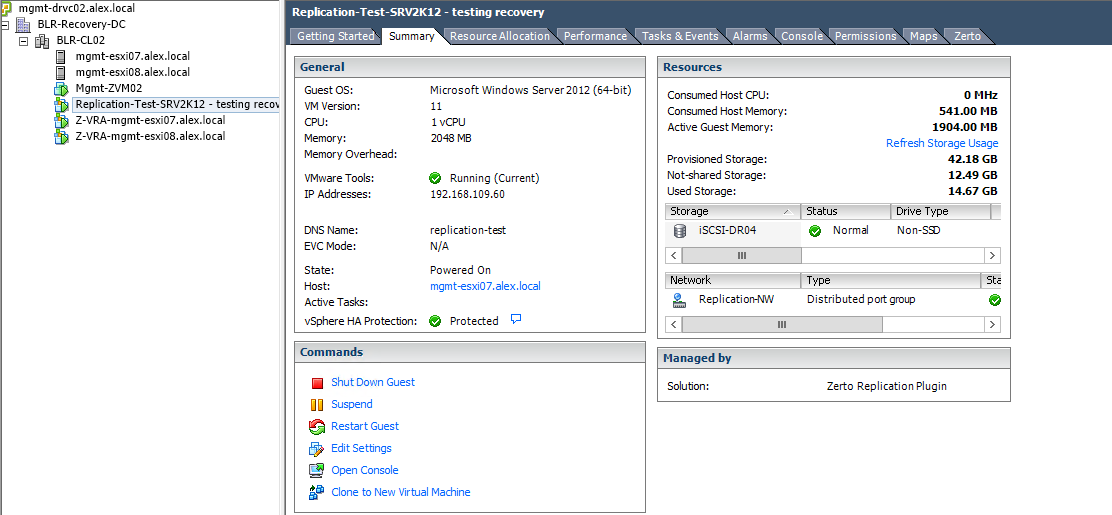
In you browse to the datastore where the newly added VM resides, you won’t see any VMDK at all. This is due to the fact that the VM is created out of scratch volume which is not visible in the original place.
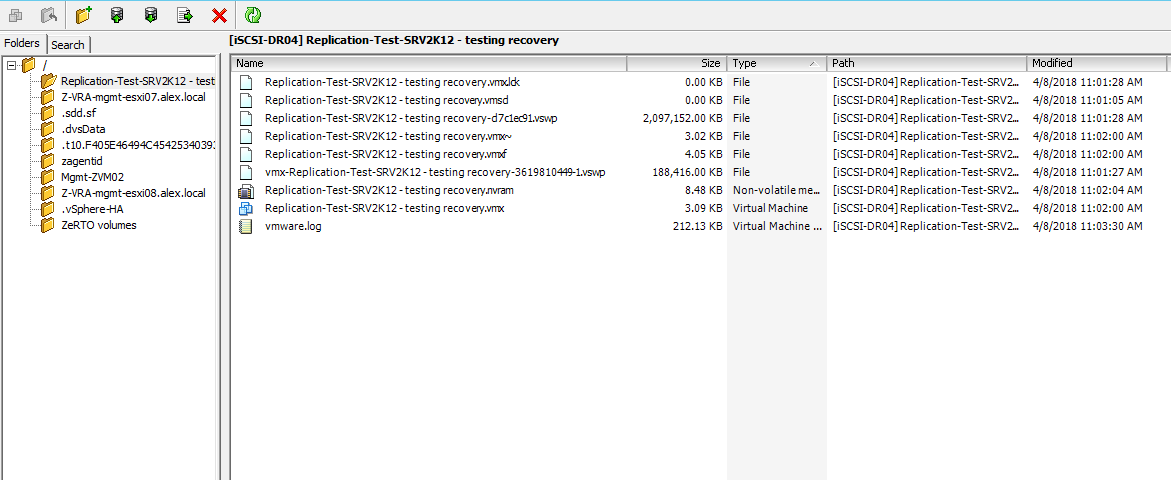
Stop Failover Test
1: Once you are done with recovery testing, you can stop the failover test by clicking on STOP button as shown in below screenshot.
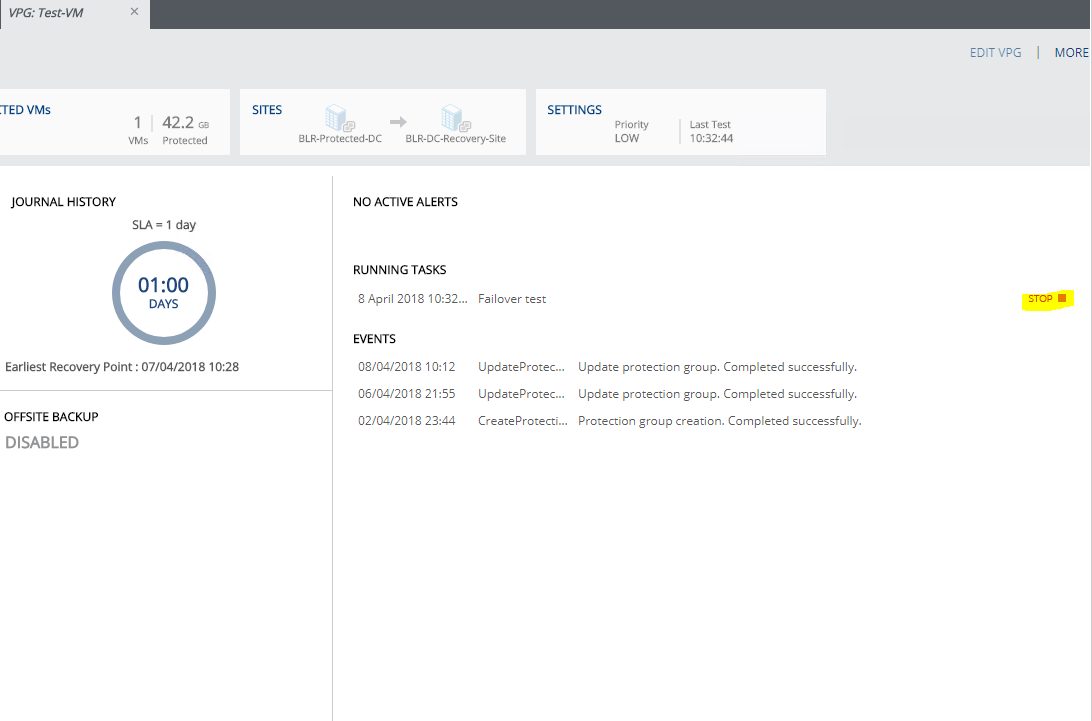
2: Click on STOP.
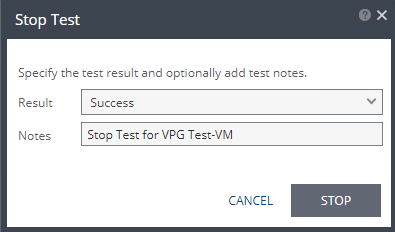
3: Again you will see few tasks at recovery site. Basically the VM will be powered off and deleted from inventory when test failover is stopped.

And thats it for this post. In next post of this series we will learn about Live Failover process.
I hope you find this post informational. Feel free to share this on social media if it is worth sharing. Be sociable 🙂
